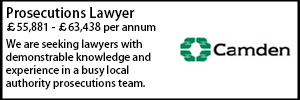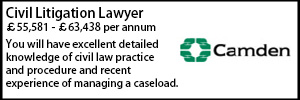PHV operators and sub-contracting to ‘out of area’ drivers
- Details
Charles Holland examines a recent ruling where conditions restricting the ability to cross-border subcontract were quashed on appeal.
In Hall and 57 Taxis Ltd v. York City Council (11 March 2024), District Judge (Magistrates’ Courts) Lower sitting at York Magistrates’ Court has allowed an appeal brought by a PHV operator against a decision of York City Council to impose conditions on an operator’s licence granted by it which placed restrictions on the ability of the operator as to which “out of area” drivers it could sub-contract work to.
The operator was a long-established established business which holds licences issued by the local authorities for Hull, Doncaster and Wolverhampton. Like many operators, it uses a software platform to undertake bookings and despatch. It acquired the assets of an existing private hire operator business licensed by York City Council, and – as licences are not transferrable – applied to York City Council for a replacement licence.
The application went before the Council’s Licensing & Regulatory Committee on 21 December 2022.
The Committee accepted that the operator was a fit and proper person to hold the licence, and it resolved to grant the licence, which was made subject to the Council’s published standard conditions, but also – and materially – to the following “Additional Conditions”:
“(a) Not to use any driver licensed by any other authority onto the operator’s platform who is known to have taken and failed the York Knowledge and Safeguarding Test within the previous 3 years, unless the driver has booked to undertake the York Safeguarding and Knowledge test or has subsequently passed.
(b) To require any other authority-licensed drivers who wish to be recruited onto the operator’s platform to state [1] if they have previously taken and failed the York knowledge and safeguarding test within the previous 3 years [2] the current live points on their DVLA licence. Drivers’ responses to be notified to the City of York Council.
(c) To require any other authority-licensed drivers who wish to be onboarded to the operator’s platform to sign an appropriate form (in accordance with the requirements of the GDPR and Data Protection Act 2018) authorising information as to their having taken, or otherwise, the City of York Knowledge and Safeguarding Test, and current live points of their DVLA licence as well the result of any such test, to be given to the operator and/or their representatives.
(d) To require that before fulfilling a sub-contracted booking from the operator, each other authority-licensed driver must complete topographical training, namely 2-3 hours of in-house training consisting of classroom or in-car training, including the York Pedestrian Zone, city centre roads and routes, and important venues such as hospitals, the railway station, tourist attractions, etc.
(e) To require that before fulfilling a sub-contracted booking from the operator, each other authority-licensed driver must take and pass a driving assessment administered by a DVSA accredited assessor, such as The Blue Lamp Trust, Green Penny or any such other organisation as may be authorised by or agreed with the City of York Council to undertake the said driving assessment.
(f) To keep records of topographical training and driving assessment for each other authority-licensed driver. The said records (including driving assessment certificate) to be kept throughout the period the driver works with the company and for 6 months thereafter. To produce such records on request of an authorised officer of the City of York Council.”
The Additional Conditions did not appear in any policy document issued by the Council.
A previous version of the Additional Conditions had been placed on the licence of a completely unrelated York-licensed operator in the compromise of an appeal that operator had brought against the revocation of his operator’s licence. Those conditions (which were the subject of a joint article in the Journal of Licensing No.33 (July 2022) p27 by counsel in that appeal) were set out in the report to Committee (“the Report Conditions”).
The unchallenged evidence called on behalf of the appellants was that the operator was not aware of and did not see the Report Conditions in advance of the hearing; furthermore, no advance notice was given that Committee might further modify the Report Conditions, and that no opportunity was afforded to make any representations about that.
The reasons given by the Committee for imposing the Additional Conditions were shortly stated:
“The Committee considered that the additional conditions are reasonably necessary in order to ensure that any bookings subcontracted to drivers licensed by authorities in districts other than York are carried out safely and that such drivers are not deterred from taking the York Knowledge and Safeguarding Test.”
The director and the company appealed to the magistrates’ court against the imposition of the Additional Conditions.
Several grounds of appeal were set out in the Notice of Appeal including:
- Inadequate reasons
- Unlawfulness on the basis that the Additional Conditions:
- removed the operator’s freedom to sub-contract as provided for by s.55A of the 1976 Act and thus caused the licence to be one not known to law;
- were ultra vires;
- breached the Padfield principle (s.55A being deregulatory in nature);
- treated out of area PHV drivers differently from York licensed PHV drivers, despite a PHV driver’s licence being a generic qualification applicable anywhere in the country (R (Delta Merseyside Ltd, Uber Britannia Ltd v. Knowsley MBC) [2018] EWHC 757 (Admin) at [44]-[45]);
- Failure to apply a policy (or operated an unlawful policy, neither consulted on nor published)
- Breach of natural justice, including amending the Report Conditions to the Additional Conditions without any prior reference to the applicant (contrary to the good practice identified in R (Westminster City Council) v. Metropolitan Stipendiary Magistrate [2008] EWHC 1202 (Admin) at [9]).
- Breach of the principles of good regulation found in s.21 of the Legislative and Regulatory Reform Act 2006.
Unusually, the local authority respondent did not serve any evidence seeking to justify or explain its decision.
In a reserved judgment, DJ(MC) Lower allowed the appeal on two grounds: breach of natural justice and failure to give adequate reasons.
In dealing with the second ground, the Judge also observed that if – as the Council contended but which was not evidenced – other operators were being made subject to the Additional Conditions, that had the flavour of a policy which had not been consulted upon.
It had been suggested to the Court on the Council’s behalf that support for the Additional Conditions could be found in obiter dicta of Kerr J. judgment in R (Delta Merseyside Ltd, Uber Britannia Ltd) v. Knowsley MBC at [56] that in principle, a condition on a licence could be imposed providing for restrictions “that are considered reasonably necessary to meet any perceived erosion of localism in the governance of PHV licensing”. The Judge did not find that these obiter views assisted him in the present case.
Thus the controversy as to whether local authorities can impinge upon a driver’s right to roam (in s.75(2) of the 1976 Act) and – now – an operator’s right to cross-border sub-contract therefore remains open. If the controversy is to be resolved, such resolution probably awaits the publication of a properly consulted upon policy.
One systemic feature of the private hire regime is the inherent tension between the nature of private hire vehicles (which move long distances) and local authority areas (which do not).
Despite there being judicial comment that localism is the “hallmark” of private hire licensing (Blue Line Taxis (Newcastle) Ltd v. Newcastle upon Tyne City Council [2012] EWHC 2599 – a pre-Deregulation Act 2015 case), the first proposed scheme of private hire vehicle licensing, promoted by the Hindley Committee in 1939, suggested the regulator be the Traffic Commissioners, a national body operating regionally.
The Hindley Committee’s report stated (para 78):
“Private hire vehicles are to a large extent … primarily local vehicles, but (a) they do not ply for hire in streets and public places, (b) a much larger proportion of their journeys are long journeys outside the local authority's area, and (c) a firm’s offices and garages may be situated or removed outside the boundaries of the town in which it seeks custom”.
The Maxwell Stamp Report of 1970, which related to London only, suggested a cross-border body for the whole of greater London (“which might be called the London Taxi and Hire Car Board”).
The sources of localism were, first, the series of local acts (including the Plymouth City Council Act 1975) and then, second, the “stop gap measures” contained in clauses introduced into the Local Government (Miscellaneous Provisions) Bill 1976 which became Part II of the 1976 Act (and which affected not just private hire licensing but also locally controlled hackney carriage licensing). At the time, the government proposed to issue a consultative document on its own replacement legislation “fairly soon” after the Bill became law. Nearly half a century later that intended temporary ‘stop gap’ is still being stopped, with little sign of any substantive reform.
Given the introduction of national minimum standards (found in the Statutory Taxi & Private Hire Vehicle Standards), a statutory National Licensing Database, and the publication of protocols for managing cross-border hiring (see the LGA Councillor Handbook (2021)), much has been done to remove the discrepancies that local policies and standards used to encourage. On this newly levelled playing field, it remains a moot question whether reinforcing local standards (and therefore reintroducing local discrepancies) is either necessary or desirable to promote public safety.
Charles Holland is a barrister at Francis Taylor Building. He represented the Appellants (Direct Access).
18-03-2026 1:00 pm
22-04-2026 11:00 am
01-07-2026 11:00 am



























